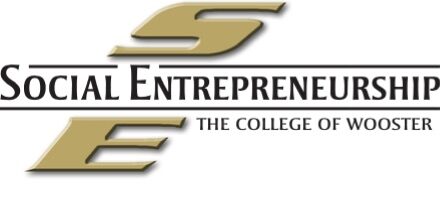Students work on social problems and challenges in the community
“We haven’t had these many projects for a long time!” said Dr Mariola.
Last fall, Dr. Matt Mariola (Environmental Studies) and Dr. Amyaz Moledina (Economics) began speaking to various community organizations about several urgent and long-term social needs in Wayne County. Early results from the Wayne County Health Department’s Survey suggested that mental health has become a major concern. There has been a large increase in suicidal ideation, especially amongst children. The unhoused population in Wooster has also been growing, with a recent report showing a worrying upward trend in “homelessness.”
With these challenges in mind, the Wayne Center for the Arts wanted to conduct a study to see if there was appetite to start an Arts Therapy Program based out of Wooster. Community Action of Wayne and Medinawanted to investigate how to move forward on starting a non-profit housing development corporation. Meanwhile, two other organizations that have worked with Wooster students in the past approached the SE program. The Immigrant Worker Project was looking into the feasibility of starting a weekend market to support immigrant entrepreneurs, and the Agroecosystem Management Program (AMP) at Ohio State wanted to research best practices for operating a coordinated long-term agricultural research facility.
Two additional faculty with sustained teaching commitments to social entrepreneurship, Dr. Melanie Long (Economics) and Dr. Peter Abramo (Entrepreneurship), agreed to join the advising team. With the community commitments secured, the faculty proceeded to recruit students. By Spring 2024, twelve students were invited to participate in the Local Social Entrepreneurship course. This annual experiential learning opportunity is organized as an interdisciplinary seminar focused on making social change happen locally.
The Local Social Entrepreneurship seminar was developed by faculty from various academic departments. Since the seminar was first offered in 2006 , the teaching faculty have accumulated many learning modules that can be flexibly tailored to the projects. They have also built a reputation of curating and catalyzing transformative social change rooted in community change organizations. [ML2] Over the course of the semester, student teams worked with their assigned clients and advisers to define the problem, collect data from community organizations, and iterate towards a solution. The main findings were presented to the board members and wider stakeholders of each organization.

The Wayne Center for the Arts team (Athena Tharenos, Edwidge Rwagasana, and Faiyaz Hasan) found that there was indeed significant demand for mental health therapy in both Wayne and Holmes County. Art therapy was found to have promise as a creative way to reach youth who may be skeptical about traditional therapies. The team developed a financial model to help the Center decide how best to organize the start-up of this initiative.
The Community Action Wayne/Medina Team (Dylan Kretchmar, Jinfei Liu, and Nana Morikawa) found that an affordable housing program in Wooster is likely to be feasible given considerable community demand, the wide range of government funding opportunities, and strong potential partnerships. However, the challenges associated with rezoning current land bank properties need to be considered and proactively addressed.
The Agroecosystems Management Program Team (Aryan Tamrakar, Leo Widtmann, and Mariia Tkach) found that there are 18 long-term agroecosystem research sites in the US funded by the Department of Agriculture. They interviewed leaders from six sites, combined their insights into a best practices document, and presented to Ohio State personnel on the need for a coordinated approach that would bring stakeholders together and leverage the strengths of the multiple university departments whose work overlaps at the site.
The Immigrant Worker Project Team (Ethan Hunt, Igna Mendez, and Rayan Dos Passos) developed a financial model for the weekend market based on examples of immigrant markets elsewhere in the country. After conducting interviews with key stakeholders, they found that the market was financially feasible, especially if it was able to grow from serving immigrants to being a space where local Ohioans might experience Latin culture. “The students were interested, not just in our plans but our lives and dreams. They wanted to help us make a better future for our family and community, a reality.” Said Dilcia Ramirez Flores. (AMIGAS Cooperative member & community market vendor)
The Social Entrepreneurship (SE) program was conceived by a group of faculty and staff in 2005. Launched in 2006 with an inaugural grant from the Burton D. Morgan Foundation, it catalyzes social change in the community by connecting clients with real organizational problems and student teams to find meaningful solutions. SE is the process of creative thinking, innovation, risk-taking, and analysis that creates opportunities with sustainable social and economic value with sensitivity to unintended consequences. The program’s goals are simple: to expose students, faculty, staff, and client organizations to the process of social entrepreneurship through experiential learning, and to encourage innovation and sustainability in the social enterprise sector.
SE has worked with more than 40 clients since 2005 and provides more than $500,000 in community value every year. Many former clients have proposed new business enterprises that have launched and grown to become important features of the local business ecosystem. Community organizations interested in discussing possible student projects for Spring 2025 can contact Dr. Moledina to schedule a consultation meeting.
To see more pictures of the teams, check out our Flickr feed.

